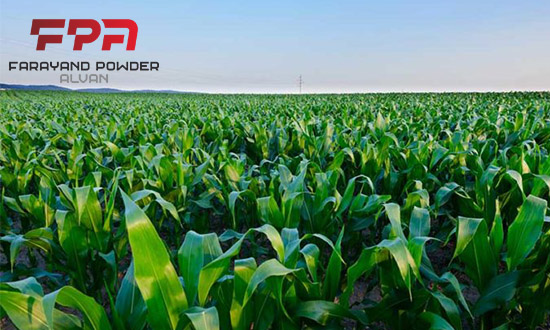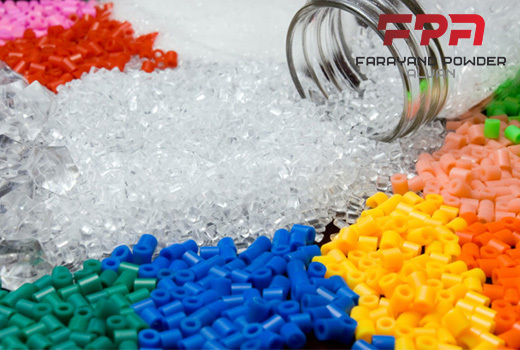Talc is a naturally occurring mineral which is widely used in cosmetic and personal care products, such as baby powder, makeup, and antiperspirant, as well as in paints, ceramics, and roofing material. Basically, talc is a hydrous magnesium silicate with a chemical formula of Mg3Si4O10(OH)2. Talc is mined from the earth and can be contaminated by asbestos, a substance known to cause cancers in and around the lungs when inhaled. However, talc used in cosmetic products in the United States must be free from detectable amounts of asbestos according to voluntary guidelines issued by the Cosmetic, Toiletry, and Fragrances Association Talc has different applications in various industries due to its special characteristics. Here are some of the beneficial applications of talc in different industries:
Paint Industry
Talc is widely used in the paint industry as a filler and extender. Talc increases the solid suspension, adhesion, water-repulsion, color, weather resistance, and UV protection of paints and coatings. Talc also improves the viscosity of the paint, fills up small spaces, and contributes minimal abrasion to the vessels and the applicator. Talc is used as an extender and filler in various types of paints such as industrial paint and coatings, printing inks, wood lacquers, fillers, and various coatings.
Paper Industry
Talc is a critical filler and extender for paper manufacturing process, which enhances the physical and mechanical properties of paper in a very unique way. Talc is used to reduce pitch-related deposits during pulp, paper, and board production. Talc is also used as a wet-end filler, coating agent, and pitch-and-stickies controlling agent in pulp and paper production process. Talc pacifies pitch and stickies within the papermaking process, during flotation, cleaning, and in the finished product. Talc is effective for pitch-and-stickies control in both chemical and mechanical virgin pulp deinked and recycled fiber pulp. Talc is very good choice for LWC paper, wood-free printing grades, tissue paper, and board.

Plastic Industry
Talc is widely used in the plastic industry as a filler, modifier as well as additive. It’s easily micronized into fine particle sizes, which perfectly fills up inter-particular spaces within polymer compounds, increasing the stiffness and impact strength of plastics and polymers. Talc has a better thermal conductivity compared to polymer, which accelerates the processing and cooling of plastic compounds, leading to faster production rates. Polymers filled with fine and lamellar talc can withstand more strain without deformation as compared to unfilled polymers. Talc's lamellar structure, combined with its fineness, fills up the smallest of pores in plastics, preventing water vapor or oxygen transmission through the resulting plastics. Talc also contributes chemical resistance to plastics and polymers.
You can read about what is talc by click on the link.
Pharmaceutical industry
Talc is used in the pharmaceutical industry as an excipient in different medicines such as tablets, capsules, dermatological powders, and creams due to its smooth and layered structure that offers required lubrication and aids in the swallowing process when applied to the outside surface of capsules and tablets. Purified talc powder is normally considered safe for human ingestion due to its physio-chemical inertness and is used in the production of tablets, capsules, dermatological powders, and creams. Talc is also a good choice to be used as a functional filler and commodity in the pharmaceutical industry.

Ceramic
Talc is widely used in the ceramic industry as a basic raw material or as a filler due to its chemical inertia. Talc is used in both bodies and glazes of the ceramics industry. Talc imparts whiteness and increases thermal expansion to resist crazing in low-fire art-ware bodies. In stonewares, small percentages of talc are used to flux the body and therefore improve strength and vitrification. Talc is a source of MgO flux in high-temperature glazes to control melting temperature. Talc is also employed as a matting agent in earthenware glazes and can be used to produce magnesia mattes at high temperatures. Talc is used in the production of traditional ceramics, super-white porcelain tiles, and glazes. Talc forms a highly effective eutectic flux when combined with feldspar or calcium carbonate, facilitating fast firing and lowering energy consumption and CO2 emissions.
Agriculture
Talc is used in the agriculture industry as an agent for pesticides and fertilizers, which helps to protect the fields and crops from harmful insects and bacteria. Talc is a good anti-caking agent, dispersing agent, and die lubricant that helps the animal feed and the seed coatings due to its natural properties. Talc reduces abrasiveness, improves seed flow rate, and reduces over-seeding and premature germination. Talc powder is used as an anticaking agent in the formulation of fertilizer and animal feed because it reduces the formation of lumps. Talc also allows insecticides to settle on the leaves and is used as a lubricant for high-temperature surfaces.

Are Talcum powder and baby powder the Same?
Talcum powder and baby powder are actually not the same thing, although talcum powder is an ingredient in baby powder. The primary ingredient in baby powder is typically either talc or cornstarch. Talc is a naturally occurring mineral substance used in a variety of cosmetic and personal care products from baby powders to eye shadows. Talc is added to absorb moisture, smooth or soften products, prevent caking, and make makeup opaque. Talc is also used as an anti-sticking substance and anticaking agent in food products and dispersing agent in animal feed and fertilizers. While some studies suggest that talcum powder may cause ovarian cancer, many of them are poorly designed, small, or rely on personal opinions. Johnson & Johnson stopped selling baby powder containing talc in North America in 2020 and announced plans to discontinue global use of the mineral and sell only a cornstarch-based baby powder formula.
Checklist of buying barite for industrial use
Here is a checklist which shall be considered when buying talc for industrial use:
- Quality: It is essential to get high-quality talc to attain optimal industrial uses. The talc used in the cosmetics industry has to be carefully mined and processed.
- Purity: Talc used in cosmetic products in the United States should be free from detectable amounts of asbestos according to voluntary guidelines issued by the Cosmetic, Toiletry, and Fragrances Association.
- Particle size: Talc is micronized into fine particle sizes, which perfectly fills up inter-particular spaces within polymer compounds, increasing the stiffness and impact strength of plastics and polymers.
- Properties: Talc has unique properties that make it ideal for different industrial applications. For example, talc is hydrophobic and opaque, which improves water-repulsion and weather resistance of paints and coatings.
- Application: Talc is used in various industries such as cosmetics, ceramics, paints, plastics, paper, rubber, pharmaceuticals, and food processing. It is essential to choose the right type of talc for the specific application.
- Safety: Talc is a naturally occurring mineral that can be contaminated with asbestos, a substance known to cause cancers in and around the lungs when inhaled. It is essential to ensure that the talc purchased is free from asbestos.
In summary and as explained above, when buying talc for industrial use, it is very important to consider the quality, purity, particle size, properties, application, and safety of the talc.
With over 30 years of experience in producing various industrial micronized powders and an experienced team with extensive knowledge of pigments, Farayand Powder Alvan Co. has been a reputable supplier in various industries and is honored to provide technical consultation to customers for the best and most economical solutions.


